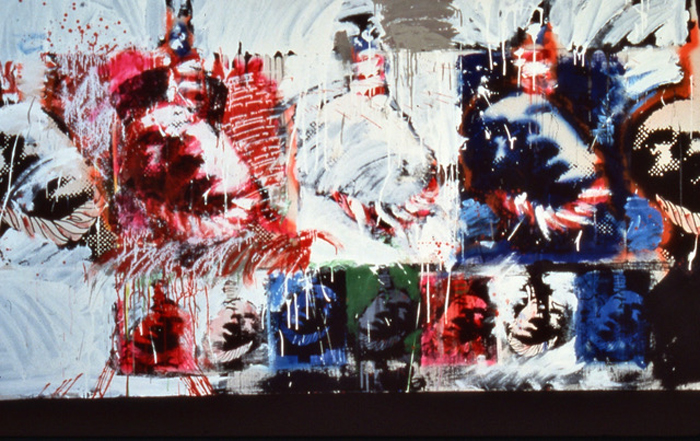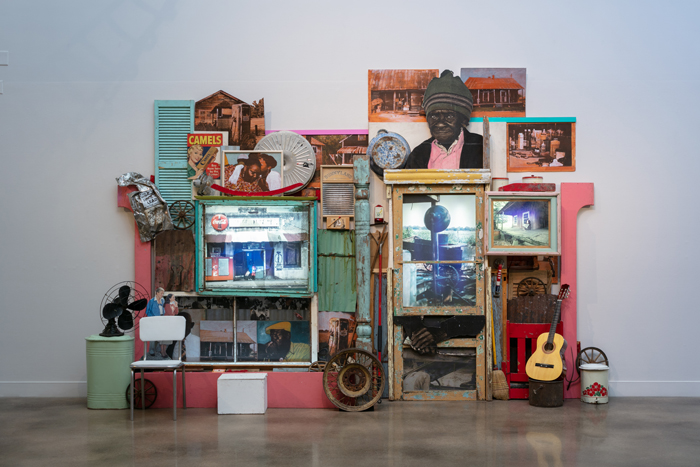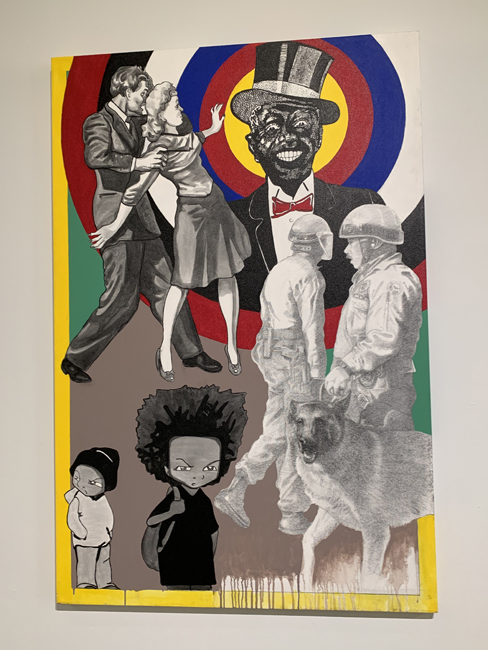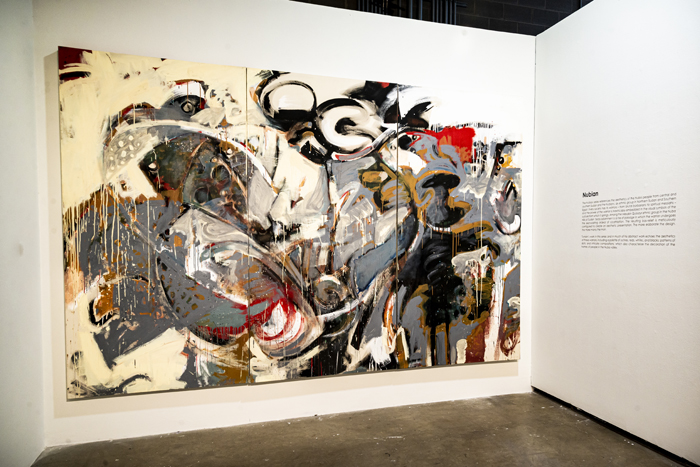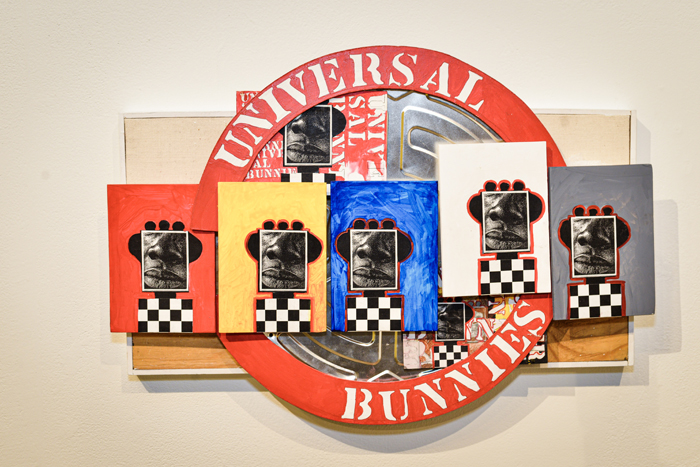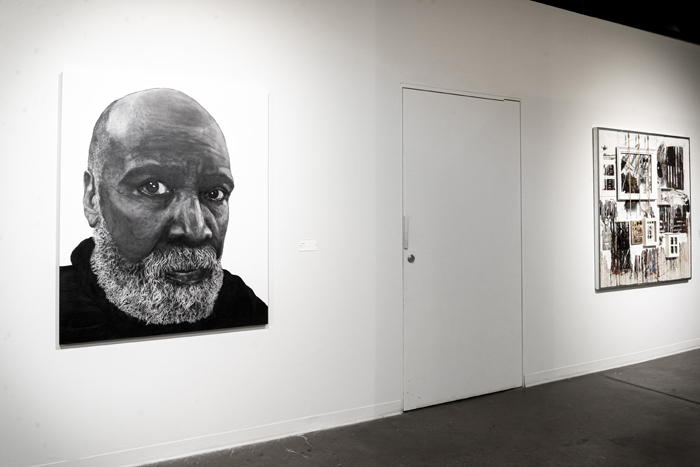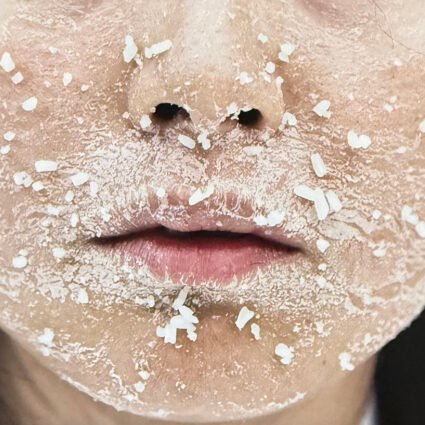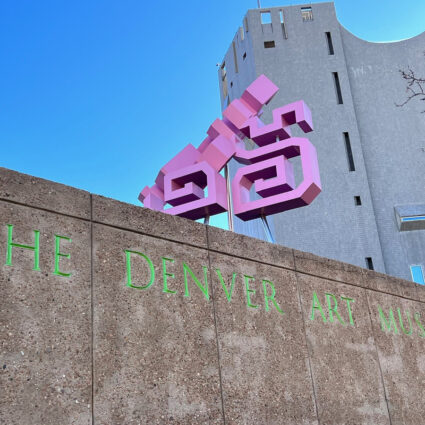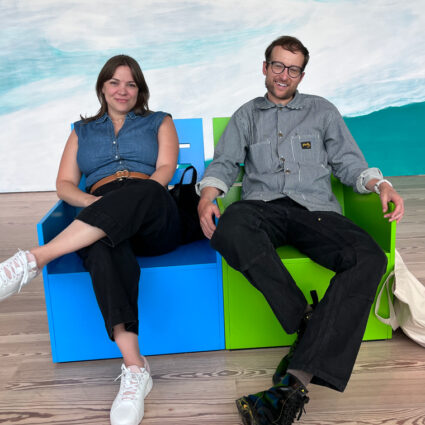Floyd D. Tunson, one of Colorado’s most important contemporary artists, is the subject of three summer exhibitions shedding light on his sociopolitical and race-related themes.
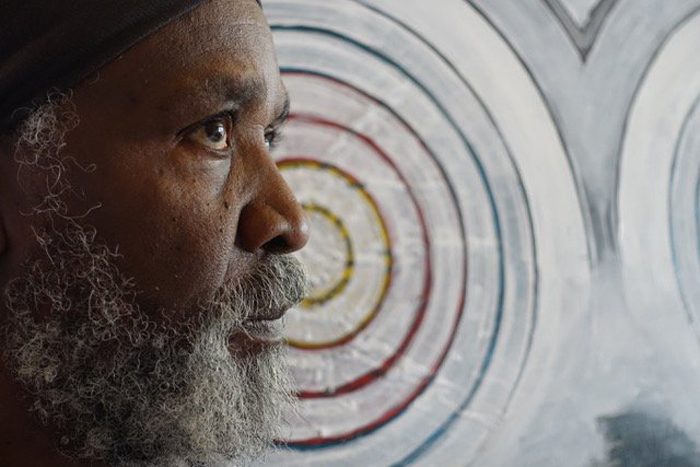
DENVER—An artist’s prerogative to center their work on sociopolitical topics comes to robust fruition in the work of Floyd D. Tunson. The Colorado-based artist excels in a variety of media and he has been producing work nonstop for five decades. In the wake of the Black Lives Matter movement, Tunson’s subject matter is especially timely, although his pieces have never shied away from topics surrounding racial injustice.
Now, Colorado has a chance to get to know Tunson better thanks to a trifecta of summer 2022 shows in Denver, Arvada, and Colorado Springs.
“Floyd has been working under the radar for a long time, but that’s the case with a lot of artists with rich lives and expansive experiences who still don’t break through,” says Mike McClung, co-owner of Michael Warren Contemporary in Denver’s Santa Fe Arts District. The gallery began representing Tunson in 2019 and showcased his abstract acrylic paintings in a 2021 solo exhibition.
“With a piece like Hearts and Minds [now on view in Colorado Springs], it’s fair to ask, ‘Well, how don’t you know him?’” McClung says rhetorically.
Hearts and Minds (1995) is a nine-panel installation stretching twenty-six feet, on view at the Colorado Springs Fine Arts Center at Colorado College. A memento mori of sorts, it is densely collaged with facsimiles of guns, cash, prison bars, skulls, and bullseyes, along with various found objects and poignant photos of young Black men. It powerfully addresses the tragic cycle of gun violence involving minorities.
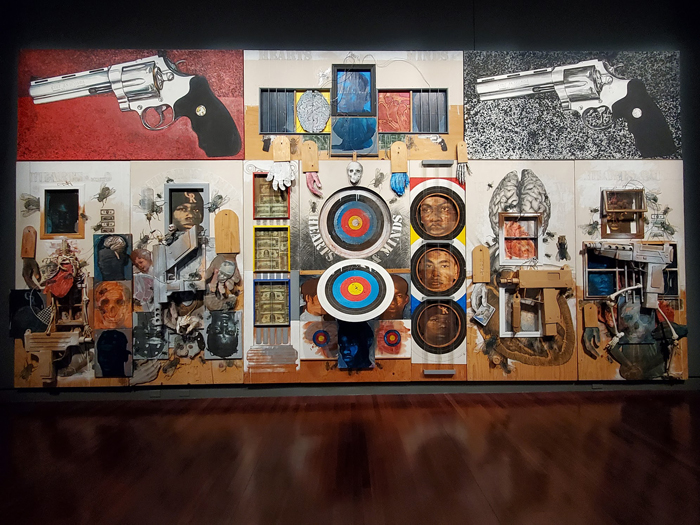
Tunson, seventy-five years old, grew up in a predominantly Black neighborhood called Five Points in central Denver, where the trauma of racial injustice directly impacted his family, specifically through a brother’s death at the hands of police.
Later in life, Tunson moved to Manitou Springs, Colorado, to nurture his art career and to teach high school art; he retired from the latter a few years ago. Tunson is such a fixture in this small-town gateway to Pikes Peak that there’s an El Mac mural of him on the exterior of the Manitou Art Center. Many former students cite Tunson as an important mentor in their own art careers.
Over the years, museum and gallery exhibitions featuring Tunson have mainly taken place in the Colorado Springs area. They include the forty-year retrospective Son of Pop (2012-13) at CSFAC and Floyd D. Tunson: Janus, which inaugurated a contemporary space at the Ent Center for the Arts in 2018.
Daisy McGowan, director of the galleries at the University of Colorado-Colorado Springs, would agree with McClung that Tunson deserves wider recognition. McGowan has been following Tunson’s career since the late 1990s. This summer’s Floyd D. Tunson: Ascent at RedLine Contemporary Art Center in Denver’s RiNo Art District has been a three-year labor of love for McGowan. As guest curator, she is also compiling a catalogue. Wylene Carol, Tunson’s longtime business manager, is a co-curator of the show.
McGowan, who says that Tunson is one of the most serious and prolific artists she knows, explains that he tends to downplay the need for promotion. “That’s why I was excited when we got the chance to expand the shows across Denver in the way we have, because it’s time to make a really strong case for Floyd Tunson being one of the most important living contemporary artists in Colorado as well as regionally,” says McGowan.
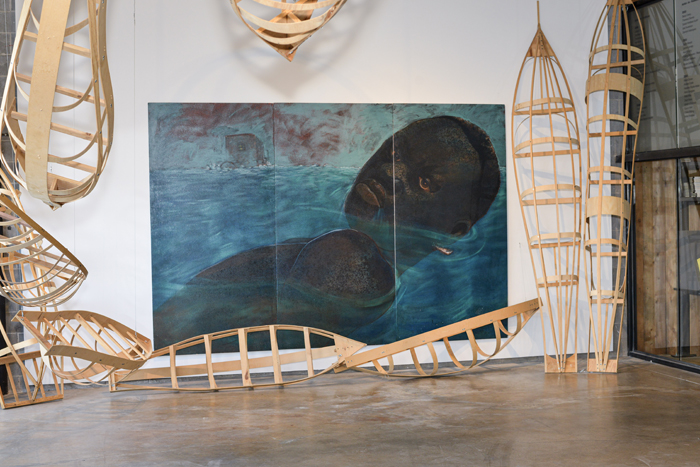
This summer’s arguably overdue spotlight on Tunson, at least as far as the Denver metro area is concerned, encompasses his mixed-media pieces, sculptures, assemblages, installations, and abstract and figurative paintings—almost 100 works across five decades. Pandemic delays and other circumstances led to both RedLine and the Arvada Center for the Arts and Humanities scheduling surveys of Tunson’s work at the same time. But the two venues happily collaborated for what has resulted in equally compelling and comprehensive exhibitions. The CSFAC installation and related musical performances serve as a welcome complement.
Tunson’s body of work is organized around several themes, including the Endangered series, focusing on the systemic racism endured by young Black men. In close-ups of Black faces, the subjects gaze directly at the viewer, appearing vulnerable and evoking empathy.
Another series, Racial/Facial Recognition, skewers the algorithms that discriminate against Black faces. And Haitian Dream Boats is an installation of skeletal scrap-wood “boats” jutting from the ceiling and floor and flanking a monumental painting of a Haitian man adrift in dark waters; the work embodies the dashed dreams of immigrants of color.
Tunson’s assemblages range in size but always brim with meaning through the many found objects and photographs he embeds in them. The Universal Bunnies series often incorporates the recurring image of a Black man’s cropped face, as well as stenciled lettering, with each assemblage or sculpture subverting the pejorative “jungle bunnies.”
Colleagues have described Tunson’s work as “beautifully militant,” in that it strives for visual appeal and resonance, yet it deals unabashedly with controversial subjects, especially regarding racial injustice. Sometimes out of a desire to make a point, even if it might offend, Tunson will incorporate racist and stereotypical tropes.
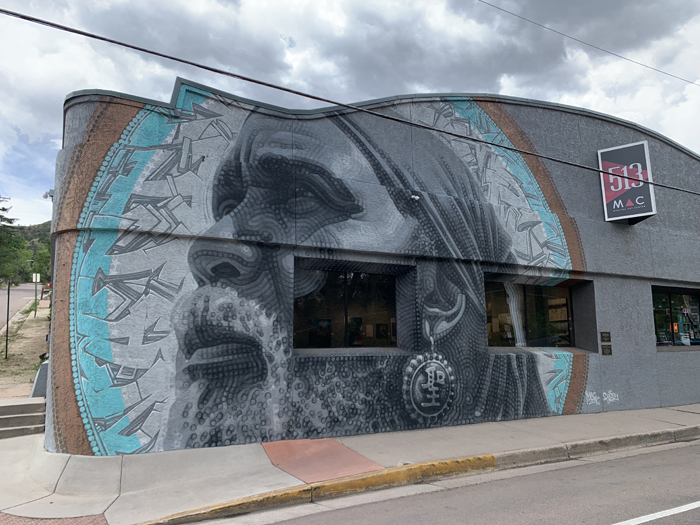
As McGowan notes, “The content (of Tunson’s work) might be challenging, but it’s absolutely appropriate for Floyd to speak to it because it’s his lived experience.” Galleries and museums act as mediators in introducing viewers to tough topics. “Art is always about empathy,” McGowan continues, “and building that empathy sometimes takes hearing the truth about what people are experiencing, how they are living their lives.”
This summer’s convergence of three Tunson shows couldn’t really have been predicted, but we are luckier for it. The exhibitions promise not only to amplify Tunson’s stature as a prolific and masterful artist but also to secure his legacy among Colorado-based creatives.
Floyd D. Tunson: Hearts and Minds at the Colorado Springs Fine Arts Center at Colorado College continues through July 9, 2022; Floyd D. Tunson: Ascent at RedLine Contemporary Art Center is on view through July 31, 2022; and Floyd D. Tunson: Ascent at the Arvada Center is on display through August 28, 2022.
